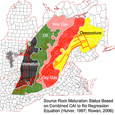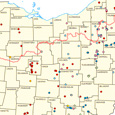Governor’s budget would slash Penn State Extension, ag research by half
Tuesday, March 15, 2011

By DARRIN YOUKER
Contributing Writer
HARRISBURG, Pa. — If cuts in the proposed Pennsylvania budget stand, Cooperative Extension programs across the state could radically change.
Gov. Tom Corbett wants to slash funding to Penn State by 50 percent, a reduction of $182 million. And that means funding to agriculture research and Cooperative Extension programming could be cut in half.
Cuts to bone
That level of funding reduction could cause Penn State to redefine its mission as a land grant institution, university officials said. And some called the proposal a push toward privatization of public higher education.
“A funding gap this large is going to fundamentally change the way we operate, from the number of students we can educate, to the tuition we must charge, to the programs we offer and the services we can provide, to the number of employees and the research we can undertake,” Penn State University President Graham Spanier said in a prepared statement.
PDA safe, for now
The Pennsylvania Department of Agriculture will receive $26.4 million, a 2 percent increase, and will add personnel to bolster the ranks of inspectors for weights and measures. There will be no need to furlough employees under the proposed budget, said Nicole Bucher, department spokeswoman.
“Overall, the budget really seems to be putting us in a lot better shape than we’ve been in previous years,” Bucher said.
Funding to Pennsylvania’s annual community fairs will remain the same at $981,000. Farmland preservation is also fully funded.
However, state grants for programs such as the Pennsylvania Center for Dairy Excellence and the Center for Beef Excellence were eliminated.
And as well, the state is looking to eliminate its cost share for farmers who purchase crop insurance. However, about $2 million in federal funding for crop insurance is available, Bucher said.
“It is not the ideal budget, but it is good enough for us to carry out our essential functions,” she said.
Worry
Farmers and agriculture organizations, however, are concerned about the proposed cuts to Cooperative Extension, and what that may mean to the future of the program.
Extension agents visit farms and provide a wealth of knowledge and expertise on the latest research and practices, said Mark O’Neill, spokesman for the Pennsylvania Farm Bureau. Agents also assist agriculture producers with incorporating better conservation practices, he said.
“They are the connection between Penn State University and their research,” he said. “A lot of extension agents have farming backgrounds. It is a good connection. They speak the farmer’s language.”
And Pa. extension experts and agents have recently become the go-to source for information on Marcellus Shale drilling, providing insight for landowners and public officials.
Farm Bureau is hopeful that funding for extension services will be put back into the budget, O’Neill said.
One area that the Farm Bureau is pleased to see increased in the budget is funding for REAP. In Corbett’s budget, funding for Resource Enhancement and Protection funds, (REAP), would increase to $10 million from $5 million.
The tax credit program is a popular, and effective, way for farmers to begin conservation practices, O’Neill said.
“It makes it possible to implement practices, or purchase equipment,” he said. “It is good for the farmer. It is good for the environment.”
Six agriculture organizations, funded by state, will seek to have their funding restored during budget negotiations. Last year, those organizations shared $300,000 in funding.
Function
The Center for Dairy Excellence acts as the central office for the dairy industry in Pennsylvania, assisting farmers with the latest in research and technology to help them become more profitable, said John Frey, the group’s executive director. State funding was an essential part of the center’s operation, he said.
“We’d like to think that this has been a really good investment for Pennsylvania,” he said.
This is not the first time that state grant funding to agriculture agencies have been cut, only to see them reinstated during budget talks, said J. Willard Lemaster, executive director of the Center for Beef Excellence, which acts as a clearinghouse of information for the state’s beef producers.
“It is premature to be too alarmed,” he said. “The last two years, it has been the same thing when the governor released the budget — our funding was cut, and then later reinserted.”
The governor’s budget proposal is the first step in the appropriation process, as the General Assembly must also present its budget proposals, and vote on a final appropriations bill.




